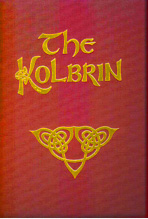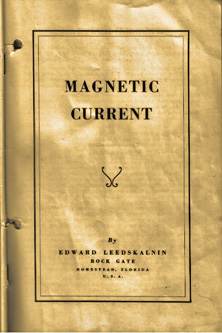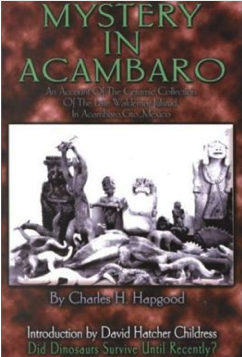Archive
TED is DEAD: TED Discredits Itself By Censoring Food As Medicine
Below is an email sent to the TEDx community regarding our view on bad science/pseudoscience talks at TEDx events.
————————————————————————————————————
Hello TEDx Community,
In light of a few suspect talks that have come out of the TEDx movement — some of which we at TED have taken action to remove, some being examined now — and this recent thread on Reddit [http://www.reddit.com/r/science/comments/1444lm/the_ted_name_is_being_dragged_through_the_mud_in/], we feel it is important to reach out to all TEDx organizers on the topic of bad science and pseudoscience.
Please know this above all:
It is your job, before any speaker is booked, to check them out, and to reject bad science, pseudoscience and health hoaxes.
Vetting your speakers is hard work, and can lead to uncomfortable moments. But as TEDx organizers, your audience’s trust is your top priority, over and above any other personal or business relationship that may have brought this speaker to your attention. It is not your audience’s job to figure out if a speaker is offering legitimate science or not. It is your job.
The consequence of bad science and health hoaxes are not trivial. As an example, Andrew Wakefield’s attempt to link autism and vaccines was exposed as a hoax last year. But while his work was being investigated, millions of children went without vaccines, and many contracted deadly illnesses as a result.
We take this seriously. Presenting bad science on the TEDx stage is grounds for revoking your license.
The letter below has three sections, and is designed to spark conversation. It focuses on 3 areas:
1. A short definition of bad science / pseudoscience.
2. Common warning signs of bad science and health hoaxes — above and beyond the science itself — how can you spot trouble?
3. Topics to watch out for, because in the past they have attracted bad science to TEDx events
Please take the time to read this letter carefully and discuss it with your curation team. Feedback is welcome.
1. What is bad science/pseudoscience?
There is no bright and shining line between pseudoscience and real science, and purveyors of false wisdom typically share their theories with as much sincerity and earnestness as legitimate researchers. (Michael Gordin’s recent book, The Pseudoscience Wars, is a great overview.) Needless to say, this makes it all terribly hard to detect and define.
But here are some basic guidelines.
Marks of good science:
- It makes claims that can be tested and verified
- It has been published in a peer reviewed journal (but beware… there are some dodgy journals out there that seem credible, but aren’t.)
- It is based on theories that are discussed and argued for by many experts in the field
- It is backed up by experiments that have generated enough data to convince other experts of its legitimacy
- Its proponents are secure enough to accept areas of doubt and need for further investigation
- It does not fly in the face of the broad existing body of scientific knowledge
- The proposed speaker works for a university and/or has a phD or other bona fide high level scientific qualification
Marks of bad science:
- Has failed to convince many mainstream scientists of its truth
- Is not based on experiments that can be reproduced by others
- Contains experimental flaws or is based on data that does not convincingly corroborate the experimenter’s theoretical claims
- Comes from overconfident fringe experts
- Uses over-simplified interpretations of legitimate studies and may combine with imprecise, spiritual or new age vocabulary, to form new, completely untested theories.
- Speaks dismissively of mainstream science
- Includes some of the red flags listed in the two sections below
2. Red flag topics
These are not “banned” topics by any means — but they are topics that tend to attract pseudo-scientists. If your speaker proposes a topic like this, use extra scrutiny. An expanding, depressing list follows:
Food science, including:
- GMO food and anti-GMO foodists
- Food as medicine, especially to treat a specific condition: Autism and ADHD, especially causes of and cures for autism
Because of the sad history of hoaxes with deadly consequences in the field of autism research, really look into the background of any autism-related talk. If you hear anything that sounds remotely like, “Vaccines are related to autism,” — RUN AWAY. Another non-legitimate argument: “We don’t know what works, so we have to try everything.” Pretty much all the time, this argument is designed to cause guilt in suffering parents so they’ll spend money on unproven treatments.
More:
- “Healing,” including reiki, energy fields, alternative health and placebos, crystals, pyramid power
- “Free energy” and perpetual motion machines, alchemy, time travel
- The neuroscience of [fill in the blank] — not saying this will all be non-legitimate, but that it’s a field where a lot of goofballs are right now
- The fusion of science and spirituality. Be especially careful of anyone trying to prove the validity of their religious beliefs and practices by using science
Look carefully at talks on these topics: ask to see published data, and find a second source, unrelated to the speaker and a recognized expert in the field, who can validate the research.
3. Red flag behavior
You may not be an expert on the science your speaker presents — yet — but you can easily identify and counter some common tactics that science hoaxers will use to try to get on your stage. This list is inspired by and builds off Emily Willingham’s post on Forbes: “10 questions to distinguish real from fake science.”: http://www.forbes.com/sites/emilywillingham/2012/11/08/10-questions-to-distinguish-real-from-fake-science/
Be alert if a potential speaker (or the speaker’s advocate on your planning team) does any of the following things:
- Barrages you with piles of unrelated, over-general backup material, attempting to bury you in data they think you won’t have time to read
- Holds a nonstandard degree. For instance, if the physics-related speaker has a degree in engineering, not physics; if the medical researcher does not have an M.D. or Ph.D.; if the affiliated university does not have a solid reputation. This is not snobbery; if a scientist truly wishes to make an advance in their chosen field, they’ll make an effort to engage with other scholars
- Claims to have knowledge no one else has
- Sends information only from websites they created themselves; there is little or no comment on them in mainstream science publications or even on Wikipedia
- Provides data that takes the form of anecdotes, testimonials and/or studies of only one person
- Sells a product, supplement, plan or service related to their proposed talk — this is a BIG RED FLAG
- Acts oddly persistent about getting to your stage. A normal person who is rejected for the TEDx stage will be sad and usually withdraw from you. A hoaxer, especially one who sees a financial upside to being associated with TEDx, will persist, sometimes working to influence members of your team one by one or through alternative channels
- Accuses you of endangering their freedom of speech. (Shutting down a bogus speaker is in no way endangering their freedom of speech. They’re still free to speak wherever they can find a platform. You are equally free not to lend them the TEDx platform.)
- Demands that TEDx present “both sides of an issue” when one side is not backed by science or data. This comes up around topics such as creationism, anti-vaccination and alternative health
- Acts upset or hurt that you are checking them out or doubting them
- Accuses you of suppressing them because TED and TEDx is biased against them and run by rich liberals 😉
- Threatens to publicly embarrass TED and TEDx for suppressing them. (The exact opposite will happen.)
While you’re not expected to become an overnight expert on all fields of science and health, here is how to start researching a topic you’re not an expert on:
Start with some basic web research. You should be able to understand at least the big issues in every field you present onstage. Wikipedia is your first stop to gain a basic background. Following primary-source links from Wikipedia, work out from there to university websites, science and health blogs, and databases of papers published in respected journals.
Ask your local university’s PR office to connect you to a professor you can speak to. Make sure it is someone totally unconnected with the potential speaker. Another place to start is the local university library, if you have access to that; a research librarian can help you find relevant journal articles.
If you have a team member who is a journalist, ask them to fact-check the speaker’s work to journalistic standards.
For an example of how to check out a possible health hoax, see this great blog post examining Dr. Oz’s promotion of green coffee beans for weight loss: http://www.sciencebasedmedicine.org/index.php/dr-oz-and-green-coffee-beans-more-weight-loss-pseudoscience/
Finally, you can always email the TEDx team at tedx@ted.com and we can work with you on helping research the credibility of a speaker’s topic before they present at your TEDx event. As a member of the community, if you do come across a talk on the TEDx YouTube channel or at a future event that you feel is presenting bad science or pseudoscience, please let us know. Bad science talks affect the credibility of TED and TEDx: it is important we get this right.
If you have any other ideas and suggestions on how to stop bad science talks on the TEDx stage please let us know. Your thoughts and suggestions are always welcome.
Best,
Lara Stein, TEDx Director
Emily McManus, TED.com Editor
TED is DEAD: TED Censoring Talks On Anti-GMO Science and Food As Medicine Talks
“This is openly admitted by TEDx itself in a little-known letter publicly published on December 7, 2012”
Learn more: http://www.naturalnews.com/042112_TED_conferences_pseudoscience_GMO.html#ixzz2fLVAabWD
















